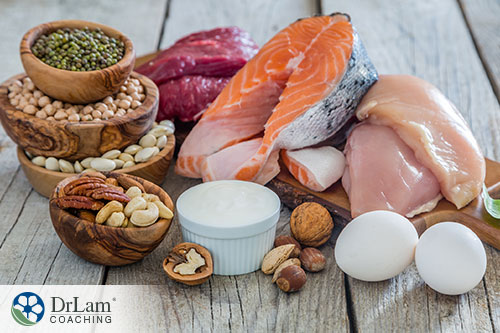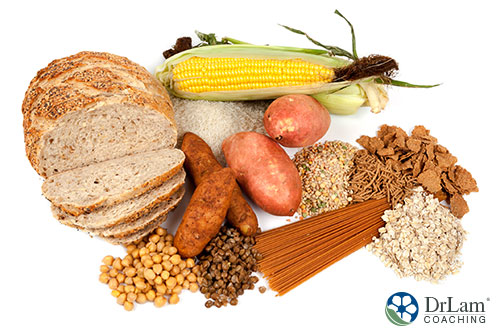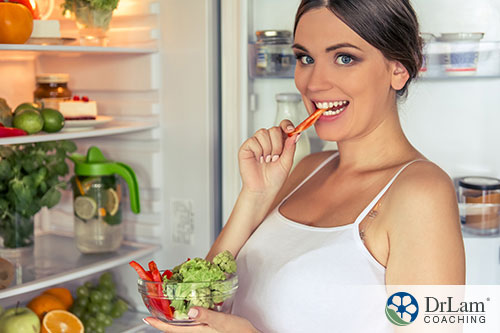 A lot of women don’t know how energy-consuming breastfeeding can be. It can burn up to 500 calories a day to produce enough milk to feed a growing baby. That means you’ll want to make sure you eat enough during this demanding period, for your own wellbeing as well as for your baby’s. In this article, we’ll cover the best kinds of food for breastfeeding, as well as some general tips for supporting your body during this time.
A lot of women don’t know how energy-consuming breastfeeding can be. It can burn up to 500 calories a day to produce enough milk to feed a growing baby. That means you’ll want to make sure you eat enough during this demanding period, for your own wellbeing as well as for your baby’s. In this article, we’ll cover the best kinds of food for breastfeeding, as well as some general tips for supporting your body during this time.
You probably already know all the benefits of breastfeeding for your baby, so we won’t get into those here. But there are tons of benefits of breastfeeding for you, too, including:
By watching your nutrition and incorporating certain food for breastfeeding, you can also make this time really count towards your overall physical and mental health.
Human breast milk contains around 60-75 kcal/100 ml, and it’s made up of 6.9-7.2% carbohydrates (counted as lactose), 3-5% fat, 0.8-0.9% protein, and 0.2% minerals called ash. It has much more carbohydrates and much less protein than colostrum, which is the first milk you produce right after giving birth.
As you can see, you’ll want to make sure that you get enough protein, carbohydrates, and fat, as well as all the different vitamins and minerals that your breast milk needs in order to provide the right nutrients and composition for your baby. The high fat content of breastmilk also means you shouldn’t be following any kind of low-fat diet at this time. In fact, you shouldn’t be doing any type of “dieting” for weight loss while breastfeeding.
By following the guidelines on the best food for breastfeeding below, you’ll not only provide the best breast milk for your baby, you’ll probably also end up losing excess weight in the process.
However, it’s worth noting that you don’t have to follow a perfect diet to produce quality breast milk. This diet benefits your health as much or more than your baby’s, especially if you have been under stress. So don’t let feeling pressured to follow a perfect diet make you want to stop breastfeeding.
 Protein is not only great food for breastfeeding, because your baby needs protein in breastmilk to grow, but it’s also very important for your recovery. You should get between 55 and 67 grams a day, or at least three servings a day. That can include lean meats, such as poultry, beef, and fish, as well as dairy products, beans, and legumes.You’ll want to avoid high-mercury fish, just as you did when pregnant, so don’t eat shark, mackerel, albacore tuna, or solid white tuna. You no longer have to worry about sushi though, and you can eat different types of shellfish. Seafood will help you get the omega-3 fatty acids your body and your baby need.
Protein is not only great food for breastfeeding, because your baby needs protein in breastmilk to grow, but it’s also very important for your recovery. You should get between 55 and 67 grams a day, or at least three servings a day. That can include lean meats, such as poultry, beef, and fish, as well as dairy products, beans, and legumes.You’ll want to avoid high-mercury fish, just as you did when pregnant, so don’t eat shark, mackerel, albacore tuna, or solid white tuna. You no longer have to worry about sushi though, and you can eat different types of shellfish. Seafood will help you get the omega-3 fatty acids your body and your baby need.The other precaution you may need to take is with dairy. Some babies are allergic to dairy products, so if your baby is one of them, you should cut them out of your diet while breastfeeding.
You’ll most likely be continuing to take your prenatal vitamins while breastfeeding, and many prenatal vitamins contain calcium as well.
If you’re moderately or severely iron-deficient, you may need to take an iron supplement, but only do so if recommended by your doctor, and make sure to keep the supplements out of reach of children.
 It’s been a topic of contention lately: are carbs friend or foe? As you saw from the breast milk composition breakdown above, your baby needs carbohydrates, and you do too. Unless you’re doing low-carb for health reasons, rather than for weight loss, getting three or more servings of complex carbohydrates, such as those found in whole grains, will give you the energy and calories you need to keep breastfeeding.You should, however, avoid simple and refined carbohydrates (those are not good food for breastfeeding or for any health purpose). Refined and simple carbohydrates, like those in white flour, sugar, and some breakfast cereal, can make blood sugar levels unstable and get you into the spikes and crashes roller-coaster that can really take a toll on your body and mind.
It’s been a topic of contention lately: are carbs friend or foe? As you saw from the breast milk composition breakdown above, your baby needs carbohydrates, and you do too. Unless you’re doing low-carb for health reasons, rather than for weight loss, getting three or more servings of complex carbohydrates, such as those found in whole grains, will give you the energy and calories you need to keep breastfeeding.You should, however, avoid simple and refined carbohydrates (those are not good food for breastfeeding or for any health purpose). Refined and simple carbohydrates, like those in white flour, sugar, and some breakfast cereal, can make blood sugar levels unstable and get you into the spikes and crashes roller-coaster that can really take a toll on your body and mind.Balancing life with a new baby can be difficult, to say the least, and this puts a lot of stress on you. Chronic stress, such as what happens when you are constantly shorting yourself on sleep to meet a tiny person’s needs, for example, can easily put your body into adrenal fatigue. And stress like this can also reduce your milk quality, to say nothing of your quality of life and your ability to take care of your baby. So it is important to understand how to this kind of stress can develop and how to avoid it.
All of the above guidelines on the best food for breastfeeding follow the rules of an adrenal fatigue diet, which is an excellent way to prevent or recover from adrenal fatigue.
When your body is under a lot of stress, such as what happens with pregnancy, birth, and motherhood when you’re not getting enough rest, sleep, or time for yourself, your adrenals have to work overtime to produce cortisol, your body’s main anti-stress hormone.
Although your body is well-equipped to handle stress, if you’re also under chronic stress from other circumstances in your life, such as dealing with a chronic illness, work problems, financial difficulties, or recurring infections, you’ll be vulnerable to getting Adrenal Fatigue Syndrome (AFS). Symptoms of AFS include fatigue, insomnia, weight gain, loss of libido, hair loss, anxiety, mild depression, infertility, PMS, hypoglycemia, heart palpitations, dry skin, and brain fog, among others.
The NeuroEndoMetabolic (NEM) Stress Response is your body’s global response to stress, and it’s composed of six circuits of organs and systems that work together to fight stress. The adrenal glands are part of the Hormone circuit, which is the circuit that is most affected by pregnancy, birth, and nursing. So you might realize that many of the symptoms of AFS resemble some of the ones you’re struggling with lately. That may or may not be a sign of AFS, so it’s always best to check with an experienced professional.
 Even if you do have AFS or some kind of dysregulation in your NEM system, you can still get support for recovery while breastfeeding. And the adrenal fatigue diet is one way to ensure you get the type of food for breastfeeding you need while also providing your adrenals and system with the nutrients that best serve recovery.
Even if you do have AFS or some kind of dysregulation in your NEM system, you can still get support for recovery while breastfeeding. And the adrenal fatigue diet is one way to ensure you get the type of food for breastfeeding you need while also providing your adrenals and system with the nutrients that best serve recovery.
New mothers often experience a lot of stress, so don’t feel that, just because motherhood is natural and beautiful, it has to be easy and you have to do it all by yourself. Taking care of your health and wellbeing, including your nutrition, exercise, sleep, and mental health, requires extra support and guidance, especially at first, so allow yourself to get it. And if you are unable to incorporate the best food for breastfeeding immediately, give yourself some grace and try again tomorrow. There’s no perfect way to handle such a delicate and transformative time in your life.
Nursing your baby can also be an opportunity to improve your own health, vitality, and wellbeing by eating healthy, nutritious meals. Just make sure to incorporate the best food for breastfeeding so you can get maximum benefit for yourself and also support your baby’s growth.
